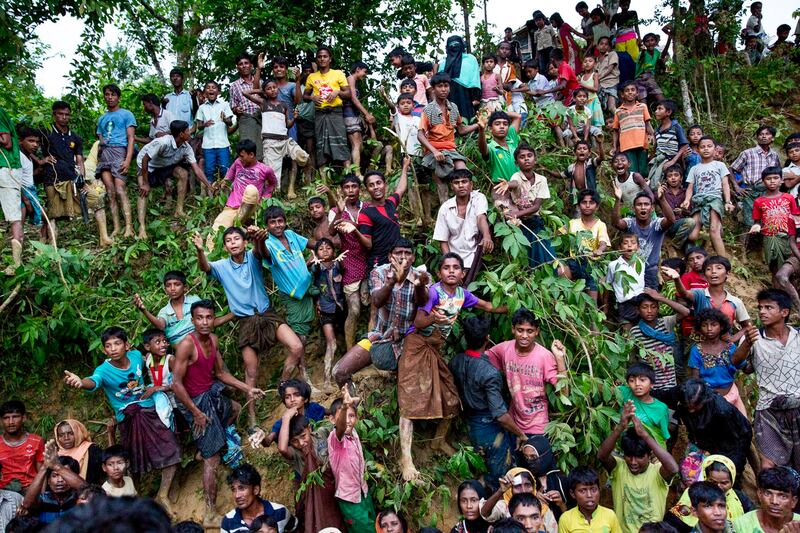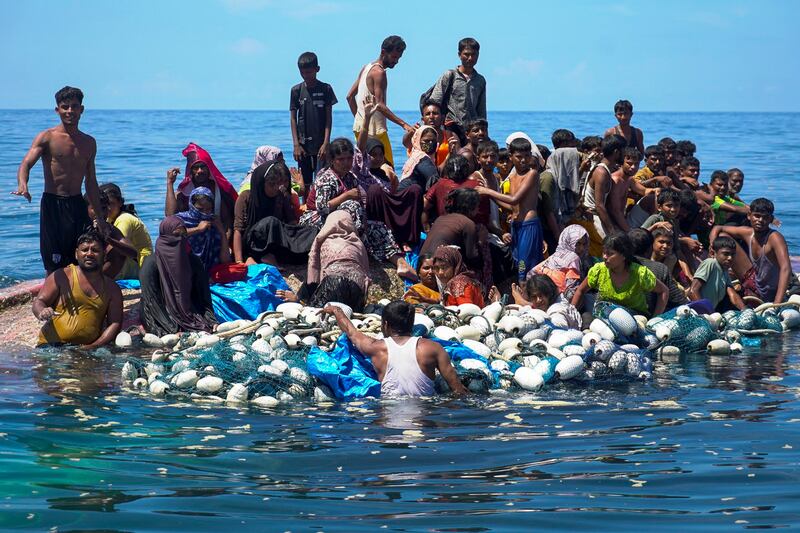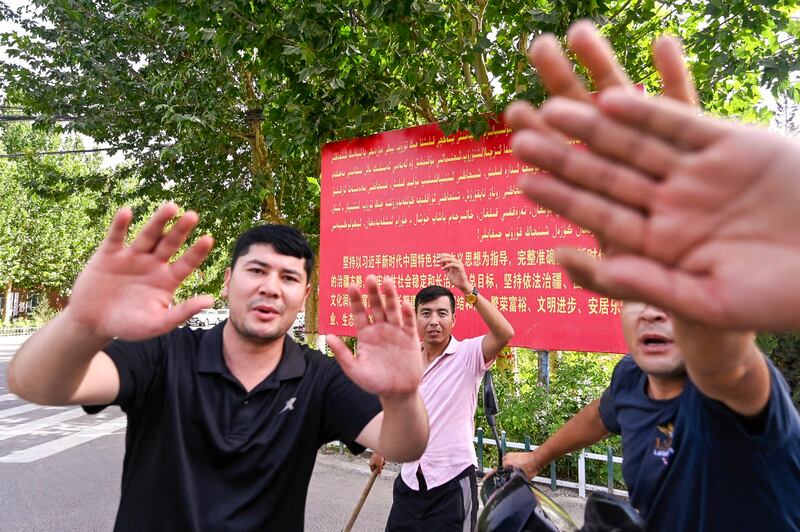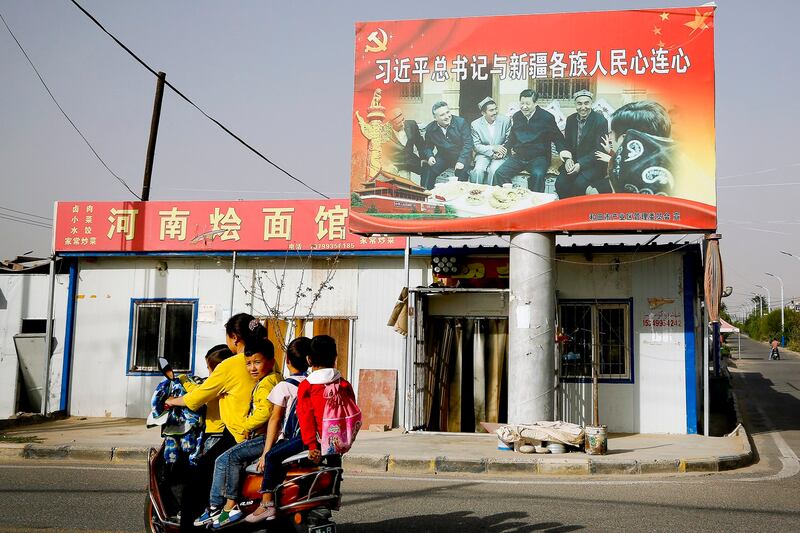Rohingya Muslims in Myanmar’s Rakhine state were subjected to “ethnic cleansing” by security forces working with vigilante groups in 2023, says a report released by the United States on Monday.
About 1 million Rohingya refugees have lived in Bangladesh since 2017, when an operation by Myanmar's military drove them across the border. Hundreds of thousands more, though, remain in Myanmar, and have been designated as "stateless" by the United Nations.
In its annual human rights country reports, which detail the rights situation in each of the world's countries and were released Monday, the State Department says the Rohingya remaining in Myanmar continue to face "severe discrimination based on their ethnicity."
In many cases, the Myanmar country report says, Rohingya civilians are even taken to be fair targets for military operations amid the country's civil war, which has hit the ethnic minority hard.

On Aug. 25, it notes, the Arakan Rohingya Salvation Army claimed responsibility for attacks on a series of security outposts in northern Rakhine state, which led to the deaths of 12 security personnel.
In response, the security forces and “local vigilante groups” then “committed widespread atrocities against Rohingya villagers.”
The atrocities included “extrajudicial killings, disappearances, rape, torture, arbitrary arrest, and burning of tens of thousands of homes and some religious structures and other buildings.”

“These atrocities and associated events forced more than 655,000 Rohingya to flee to Bangladesh as of December,” says the report, “and constituted ethnic cleansing against the Rohingya.”
Uyghur genocide
The China country report noted that many of the 1.8 million Uyghurs who have been "detained in the government's mass arbitrary detention campaign" still "remain imprisoned" to this day, despite the Chinese government's claims that most of the camps have now closed.

China’s government says that the camps, which it claims are in fact vocational training centers, were mostly closed in mid-2019, with the detained Uyghurs having graduated and found employment.
U.S. officials have said in the past that the claims are questionable.
The 2023 human rights country report for China says that the genocide against the mostly Muslim Uyghurs in the far western region of Xinjiang continued last year, with “forced disappearances” against Uyghurs also not abating.
“Genocide and crimes against humanity occurred during the year in China against predominantly Muslim Uyghurs and members of other ethnic and religious minority groups in Xinjiang,” the report says.

In many cases, family members of Uyghurs who are subjected to “forced disappearances” and not even informed as to the location of the person detained, or the length of time they will be detained.
For other RFA target countries – including North Korea, Laos, Cambodia and Vietnam – the 2023 report noted few overall changes.
“There were no significant changes in the human rights situation,” the reports for those countries say, even if the situation remains poor.
Edited by Malcolm Foster.
